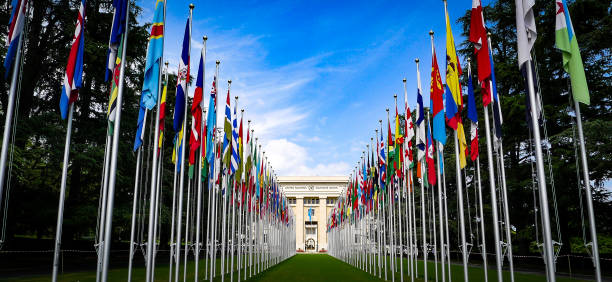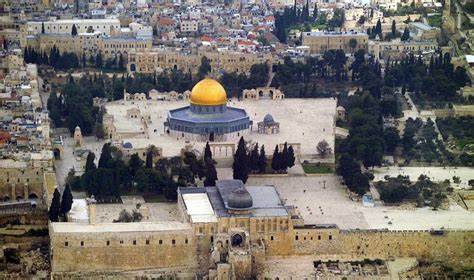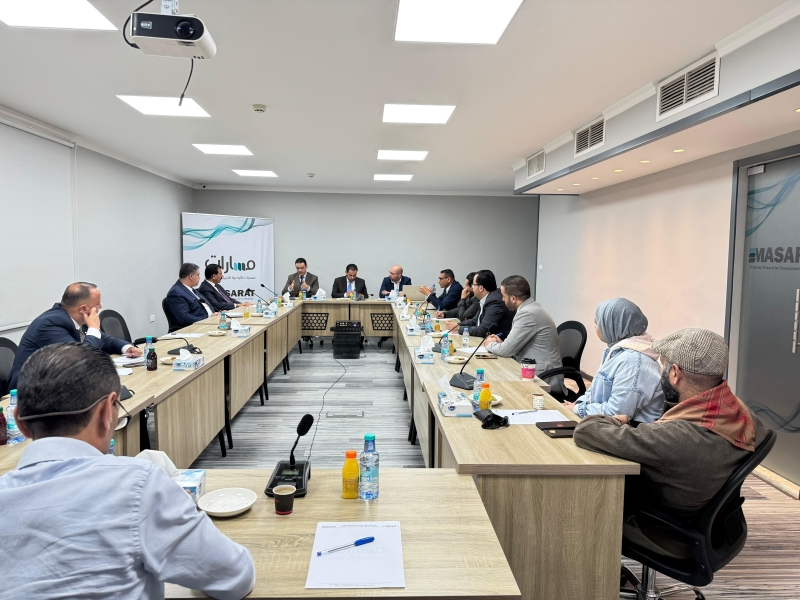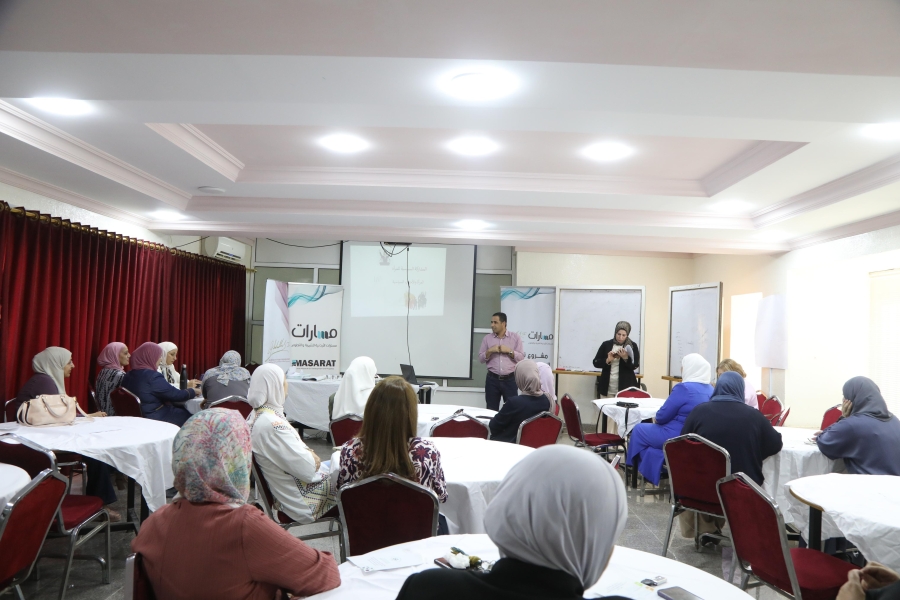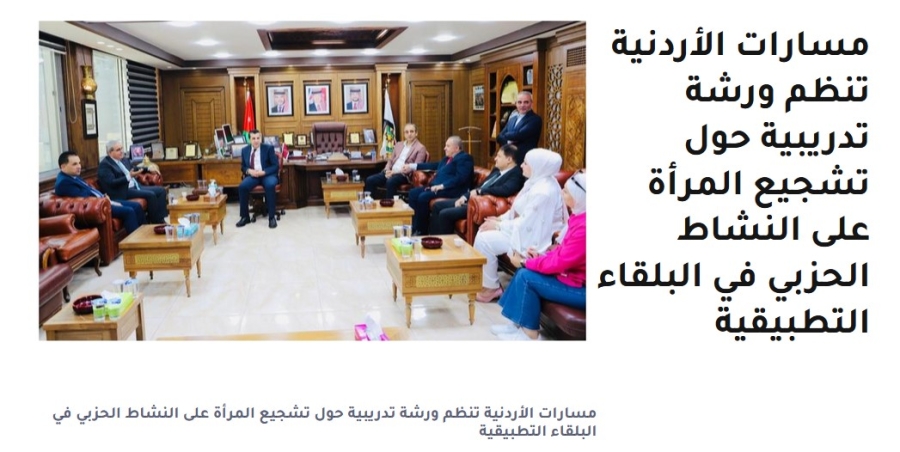Al-Maaytah sponsors the launch of a project to train academic women in party work
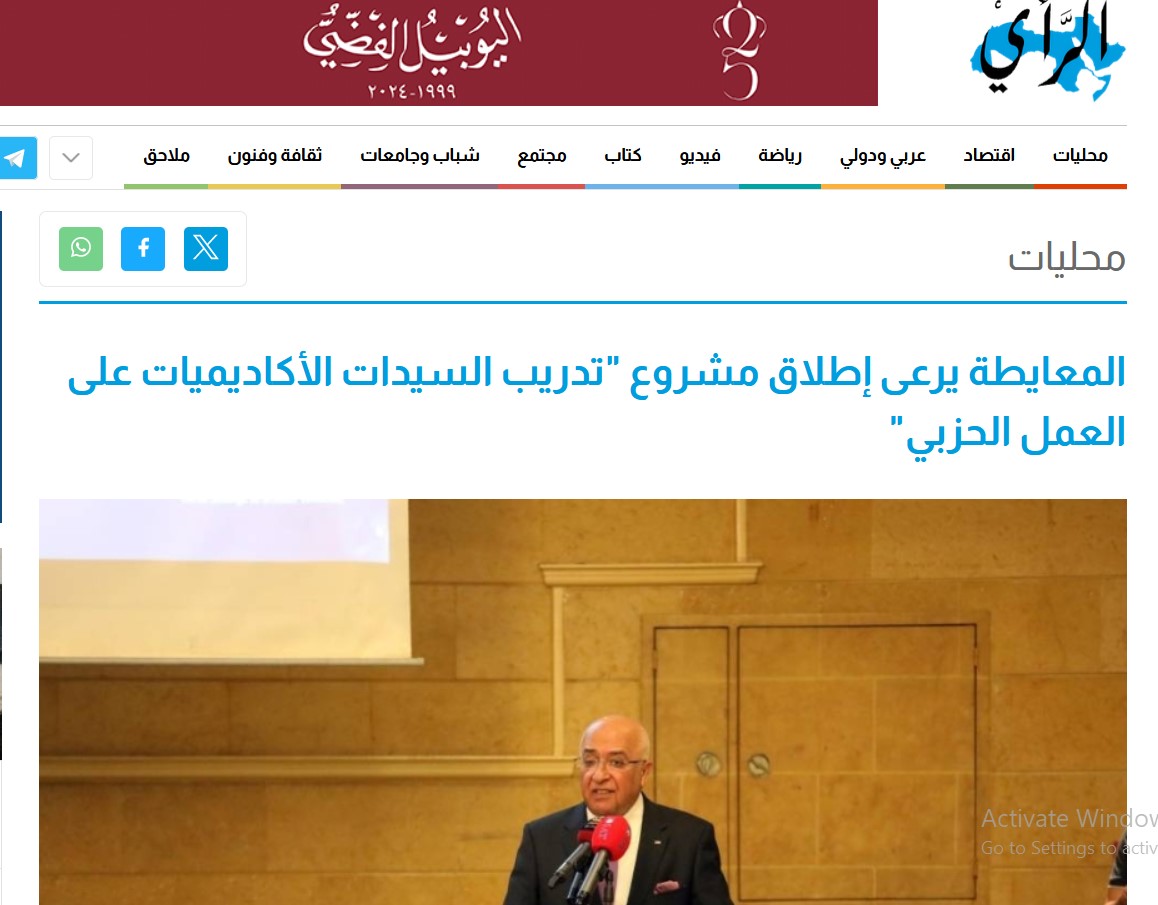
Al-Maaytah Sponsors the Launch of the "Training Female Academics on Party Work in Universities" Project
Amman - Al-Dustour
Chairman of the Independent Election Commission, Musa Al-Maaytah, emphasized the importance of supporting civil society organizations and partners in activities and training programs that align with Jordan’s political modernization vision.
During the launch of the "Training Female Academics on Party Work in Universities" project by Masarat Foundation for Development and Progress, in collaboration with the King Abdullah II Fund for Development, Al-Maaytah stated that transferring knowledge from participating female academics to students is a vital component of this modernization. He underscored that modernization is a gradual process, not one that happens overnight.
Al-Maaytah explained that achieving a parliamentary government requires a shift to structured collective work, rather than individual efforts, highlighting that success in collective and party work does not depend solely on individual capabilities. He stressed that organized collective work in parliament is the key to forming an effective parliamentary government.
He praised the University of Jordan elections as a model of democracy and expressed hope for similar levels of participation in the upcoming parliamentary elections.
Statements by Officials
Minister of Political and Parliamentary Affairs, Haditha Jamal Al-Khraisha, highlighted that this project coincides with Jordan's 78th Independence Day celebrations, marking a democratic journey that began with King Abdullah I and continues under the leadership of King Abdullah II. He emphasized the importance of citizen participation in all aspects of development.
Al-Khraisha affirmed Jordan's commitment as a state of institutions and law, noting that constitutional entitlements proceed naturally despite regional challenges. He pointed out that the upcoming parliamentary elections will be held as scheduled, under laws that strengthen political pluralism and provide greater opportunities for women and youth.
He explained that King Abdullah II’s initiative to form the Royal Committee to Modernize the Political System aimed to enhance democratic processes, political pluralism, and the establishment of a programmatic parliament that meets the aspirations of Jordanians.
Al-Khraisha noted that the Jordanian legislator has provided tools for success in transitioning to a pluralistic society. He highlighted provisions in the Political Parties Law that require at least 20% of a party’s general membership to be women and ensure women’s leadership roles within parties. Additionally, the Election Law guarantees women a significant presence in parliament, far exceeding their previous representation.
The Minister also mentioned government efforts to integrate political modernization concepts into university curricula through programs for students and faculty members teaching civic education, aimed at instilling democratic values and civic responsibilities.
The Director of the King Abdullah II Fund for Development, Mazen Tblett, expressed pride in launching the "Tamkeen" initiative to support political projects. Coinciding with King Abdullah II’s silver jubilee, the initiative reflects the Fund’s role as a national institution supporting state efforts to encourage political participation.
Tblett detailed the initiative’s support for 10 projects, including:
- Mapping political parties and alliances in Jordan.
- Enhancing parties’ use of digital media to communicate their goals.
- Equipping women in universities with leadership skills for decision-making and active political participation.
- Empowering Jordanian youth to engage in politics and elections.
- Supporting women leaders aiming to run for elections by building their public speaking and advocacy skills across Jordan’s regions.
Remarks from Masarat Foundation
Chair of the Board of Trustees for Masarat Foundation, Reem Abu Hassan, welcomed attendees and expressed hope that the project would inspire positive change, foster advanced political participation, and strengthen democratic institutions.
Abu Hassan emphasized that the project aligns with the national reform agenda led by King Abdullah II, focusing on women’s inclusion in politics. By empowering female academics, the project invests strategically in the future, aiming for a more inclusive, equitable, and effective governance framework.
She explained that the project equips participants with advanced skills in leadership, strategic negotiation, and public policy development, preparing women not only to participate in politics but also to lead and reshape political discourse.
Subsequent Sessions
After the opening session, the second session featured:
- Dr. Anis Mansour, a member of the Higher Education Council, representing the Minister of Education, discussing the role of education in promoting political participation.
- Dr. Ali Al-Khawaldeh, Secretary-General of the Ministry of Political and Parliamentary Affairs, addressing challenges in women’s political participation.
- Dr. Amal Al-Awadah, Chair of the Women’s Studies Center at the University of Jordan, highlighting the importance of women in party work.
- The Chair of Princess Basma Center for Women’s Studies at Yarmouk University discussing the role of academic institutions in fostering a culture of political participation.
- Dr. Aida Abu Tayeh from Al-Hussein Bin Talal University exploring the role of female academics in shaping political discourse.


